25 items found: Search results for "continuous integration" in all categories x
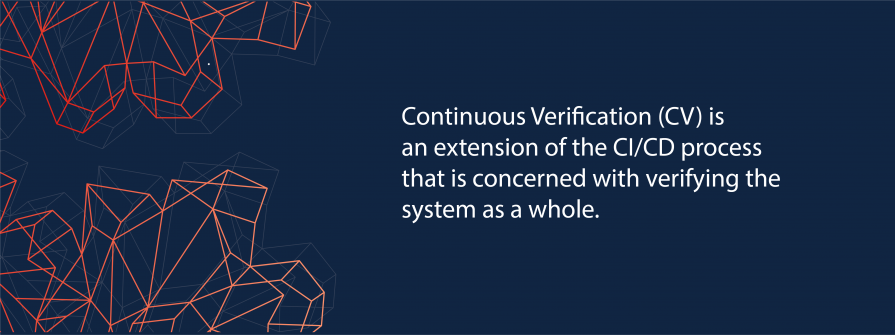
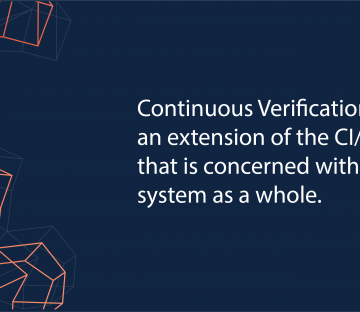
October 15, 2020
Continuous Verification is a term that is starting to pop up from time-to-time… but what does it mean? Well… according to Nora Jones and Casey Rosenthal, authors of O’Reilly’s Chaos Engineering books,
“Continuous verification (CV) is a discipline of proactive experimentation, implemented as tooling that verifies system behaviors. This stands in contrast to prior common practices in software quality assurance, which favor reactive testing, implemented as methodologies that validate known properties of software. This isn’t to say that prior common practices are invalid or should be deprecated. Alerting, testing, code reviews, monitoring, SRE practices, and the like—these are all great practices and should be encouraged”
Over the course of this post, we will unpack this statement: to understand what is behind it and what it might mean for your development process.


January 7, 2013 | Software Consultancy
The practice of continuous integration in which build servers are used to build and perform testing of code is now widespread and mainstream.
While not all teams have adopted continuous integration effectively, its increasing adoption has led many to start to look for additional opportunities to improve the cost, quality and speed of delivery with which software targeted to meet business needs can be released into production environments.
Traditionally Continuous Integration addresses the question of “does the software build and pass our unit and integration test suites?”. This is often insufficient.


June 1, 2022 | Open Source, Software Consultancy
Watch the talk ‘The Zen School of Github Actions’ by our Lead Consultant, Jonathan Ruckwood from Devoxx UK 2022


September 12, 2019 | Cloud Native, Microservices, Software Consultancy
As a technology leader, you’ll be aware that competitive pressures and shifting business requirements are driving changes in the technical architectures of many organisations. This means you need a new strategic approach based on the ability to continually evolve elements of your systems and architectures.
Join us on the 25th of July at the London HashiCorp Meetup and hear from our CTO, Nicki Watt discuss evolving your infrastructure with Terraform!
Join us for Infracoders London on the 21st of June to hear talks from our Lead Consultant, Bart Spaans and Thoughtwork’s Cloud Specialist, Kief Morris!


March 14, 2016 | Software Consultancy
Test automation provides fast feedback on regressions. In order to achieve this tests need to execute quickly, something which becomes more of a problem as test suites grow. This is especially true of tests which exercise a user interface where the interaction with the system is slower.
A good way to address this is to have your tests execute in parallel rather than consecutively. Given sufficient resources this allows your execution time to remain low almost indefinitely as more scenarios are added to the suite.


March 2, 2016 | DevOps, Microservices
Many of our clients are currently implementing applications using a ‘microservice’-based architecture. Increasingly we are hearing from organisations that are part way through a migration to microservices, and they want our help with validating and improving their current solution. These ‘microservices checkup’ projects have revealed some interesting patterns, and because we have experience of working in a wide-range of industries (and also have ‘fresh eyes’ when looking at a project), we are often able to work alongside teams to make significant improvements and create a strategic roadmap for future improvements.






March 11, 2015 | Microservices
 One of the pain points experienced with developing microservices is that it often proves too cumbersome to replicate an environment for local development. This usually means the first time an application talks to its “real” dependencies is when it gets deployed to a shared testing environment. A relatively laborious continuous integration process usually precedes this deployment, making our feedback cycle longer than we would like. In this post I describe a workflow that aims to improve that, using Docker and Docker Compose (formerly known as fig).
One of the pain points experienced with developing microservices is that it often proves too cumbersome to replicate an environment for local development. This usually means the first time an application talks to its “real” dependencies is when it gets deployed to a shared testing environment. A relatively laborious continuous integration process usually precedes this deployment, making our feedback cycle longer than we would like. In this post I describe a workflow that aims to improve that, using Docker and Docker Compose (formerly known as fig).
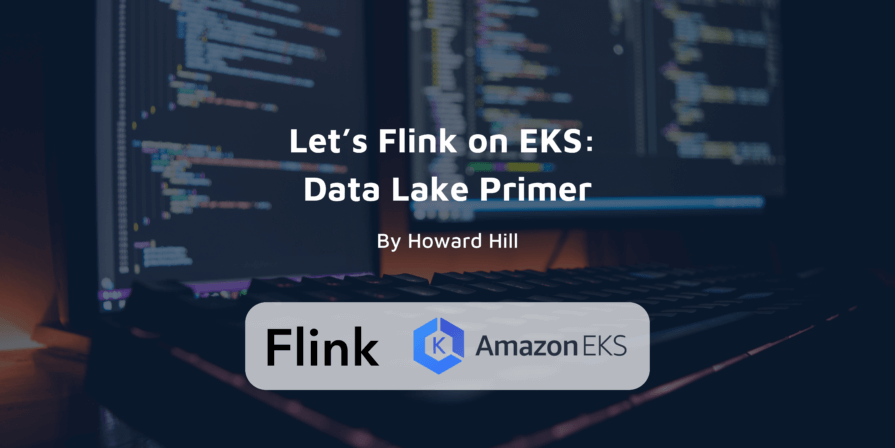

November 22, 2023 | Blog, Data Analysis
Check out the latest blog by Our Senior Consultant Howard Hill where he offers an engineer’s guide to streamlining real-time data using an open-model infrastructure.

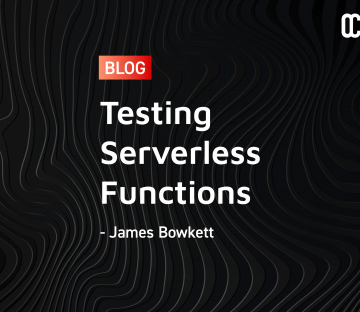
February 11, 2022 | AWS, Cloud, GCP, Kubernetes, Microservices, Open Source, Software Consultancy
Serverless functions are easy to install and upload, but we can’t ignore the basics. This article looks at different strategies related to testing serverless functions.
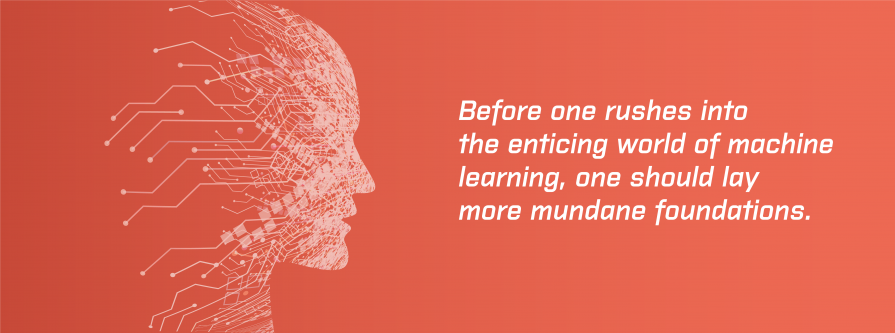

April 2, 2020 | Machine Learning
Recent years have seen many companies consolidate all their data into a data lake/warehouse of some sort. Once it’s all consolidated, what next?
Many companies consolidate data with a field of dreams mindset – “build it and they will come”, however a comprehensive data strategy is needed if the ultimate goals of an organisation are to be realised: monetisation through Machine Learning and AI is an oft-cited goal. Unfortunately, before one rushes into the enticing world of machine learning, one should lay more mundane foundations. Indeed, in data science, estimates vary between 50% to 80% of the time taken is devoted to so-called data-wrangling. Further, Google estimates ML projects produce 5% ML code and 95% “glue code”. If this is the reality we face, what foundations are required before one can dive headlong into ML?


May 31, 2018 | DevOps
As traditional operations has embraced the concept of code, it has benefited from ideas already prevalent in developer circles such as version control. Version control brings the benefit that not only can you see what the infrastructure was, but you can also get reviews of changes by your peers before the change is made live; known to most developers as Pull Request (PR) reviews.


April 18, 2018 | Microservices
Quite a few of the anti-patterns we observe today on microservices projects are strongly related to how people approach the problem. Given their nature, these anti-patterns tend to be deeply ingrained and self-sustaining. Addressing them starts with increased awareness and by changing ways of approaching the problem, rather than by the introduction of yet another technical tool or framework.


November 3, 2015 | Software Consultancy
My JavaOne experience was rather busy this year, what with three talks presented in a single day! The first of these talks “Debugging Java Apps in Containers: No Heavy Welding Gear Required” was delivered with my regular co-presenter Steve Poole, from IBM, and we shared our combined experiences of working with Java and Docker over the past year.


October 31, 2015 | Microservices
Over the past few weeks I’ve been writing an OpenCredo blog series on the topic of “Building a Microservice Development Ecosystem”, but my JavaOne talk of the same title crept up on me before I managed to finish the remaining posts. I’m still planning to finish the full blog series, but in the meantime I thought it would be beneficial to share the video and slides associated with the talk, alongside some of my related thinking. I’ve been fortunate to work on several interesting microservice projects at OpenCredo, and we’re always keen to share our knowledge or offer advice, and so please do get in touch if we can help you or your organisation.
![Microservice Platforms: Some Assembly [Still] Required. Part One](https://opencredo.com/wp-content/uploads/2018/10/banner-vanancies-895x196.jpg)
![Microservice Platforms: Some Assembly [Still] Required. Part One](https://opencredo.com/wp-content/uploads/2018/10/banner-vanancies-360x312.jpg)
August 26, 2015 | Cloud
Unless you’ve been living under a rock for the last year, you’ll undoubtedly know that microservices are the new hotness. An emerging trend that I’ve observed is that the people who are actually using microservices in production tend to be the larger well-funded companies, such as Netflix, Gilt, Yelp, Hailo etc., and each organisation has their own way of developing, building and deploying.




January 10, 2013 | DevOps
Recently I have started looking into SaltStack as a solution that does both config management and orchestration. It is a relatively new project started in 2011, but it has a growing fanbase among Sys Admins and DevOps Engineers. In this blog post I will look into Salt as a promising alternative, and comparing it to Puppet as a way of exploring its basic set of features.


December 18, 2012 | Software Consultancy
The first thing most people think of when they start a project with the good intentions of test driven development is: write a test first. That’s great, and something I would fully encourage. However, diving in to writing tests without forethought, especially on large projects with a lot of developers can lead to new problems that TDD is not going to solve. With some upfront thinking (but not big upfront design!) a large team can avoid problems later down the line by considering some important and desirable traits of a large and rapidly changing test suite.


February 8, 2012 | Data Analysis, Data Engineering
Most of the important players in this space are large IT corporations like Oracle and IBM with their commercial (read expensive) offerings.
While most of CEP products offer some great features, it’s license model and close code policy doesn’t allow developers to play with them on pet projects, which would drive adoption and usage of CEP in every day programming.